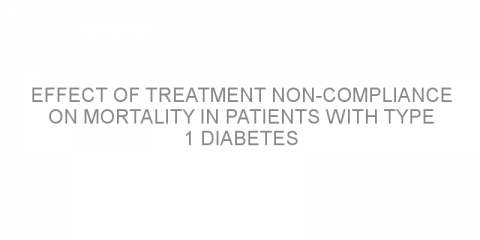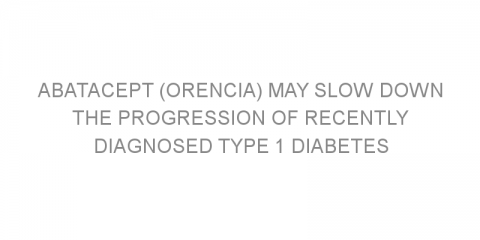In a nutshell This review analyzed current research regarding pancreas transplantation for diabetic patients. Some background The hormone insulin is produced by the pancreas and is responsible for regulating blood sugar levels. In type 1 diabetes mellitus (T1DM), the pancreas does not produce insulin effectively. In type 2 diabetes mellitus...
Read MoreDiabetes-related adverse event(s)-Diabetic Ketoacidosis (DKA) Posts on Medivizor
Effect of treatment non-compliance on mortality in patients with type 1 diabetes
In a nutshell This study aimed to determine the effect of treatment non-compliance on mortality rates in type 1 diabetes patients. Results showed that mortality was higher in patients who did not follow the prescribed treatment. Some background Approximately 10% of all diabetes mellitus patients have type 1 diabetes as a result of a complete lack...
Read MoreAbatacept (Orencia) may slow down the progression of recently diagnosed type 1 diabetes
In a nutshell This study tested the efficacy of a new drug that may slow down the progression of type 1 diabetes. The main outcome was that Abatacept (Orencia) slowed down the decline in insulin production. Some background Type 1 diabetes is an autoimmune disease. This means that the body’s immune system begins to attack its own cells,...
Read MoreInsulin pumps versus insulin pens for the treatment of insulin-dependent diabetes
Daily insulin therapy is needed to maintain normal blood sugar levels (“glycemic control”) in all patients with type 1 diabetes mellitus (T1DM) and many patients with type 2 diabetes mellitus (T2DM). Insulin is usually given using insulin “pens” or insulin pumps. Glycemic control is assessed by frequent self-monitoring glucose...
Read More





